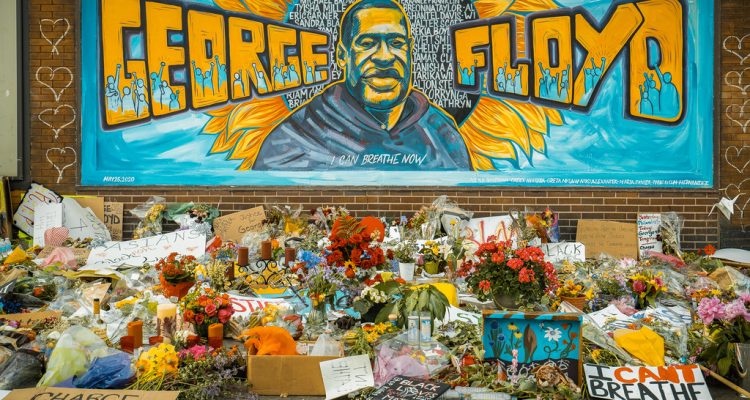George Floyd’s death has ignited an overdue surge for racial justice. For the past few months, protests have flooded this country, as well as others, but they have not solved this centuries old issue. While the conversation around race and racial justice has become more prominent than ever, Fairfield still has not witnessed a desired shift in awareness and allyship.
“Nobody on campus really talks about it,” noted Chelsey Gabriel ‘22, president of the Black Student Union. “Everyone tries to just not mention it.”
“I haven’t seen much just yet,” said Dean of Students Will Johnson, echoing the observation of Gabriel. “I was certainly anticipating that there might be a little bit more of a buzz on campus, a little bit more conversation within the student body.”
This sentiment has registered with many people across campus. “I think that’s been the hardest part, seeing this change slowly surrounding our faculty and staff but not getting that support from our peers,” remarked Jessica Castillo ‘21, member of Racial Justice is Social Justice (RJSJ). “These conversations can only be as productive as the people that are participating in them,” she added.
Junior Tushi Patel has also recognized this trend. “Students really do need to do a better job of showing up. It’s okay to be imperfect, the most important thing you can do is just show up. That’s why we’re in college, we’re supposed to be learning.”
The RJSJ coalition, an unofficial University group formed with the common interest of its namesake, includes immense faculty participation. The Diversity, Equity and Inclusion Book Club serves as another way in which faculty and staff are working towards this cause. Most notably, many professors have applied more race-conscious approaches to their teaching.
Gabriel explains that two of her professors, who are both white, emphasized that race will be heavily incorporated into the course, regardless of how uncomfortable the topic may make students.
“They were just vouching for people like me, students of color, just saying, ‘There are people in this room who have been uncomfortable their whole life,’” Gabriel said.
This noticeable support has alleviated much of students’ frustrations with their peers’ apathy.
“It also gave me a lot of hope seeing that specific departments, whether it’s the Dean of Students, the College of Arts and Sciences . . . others within the community have risen up to the challenge, and really took a stand in solidarity,” remarked Patel. “Even though we are a predominantly white institution,” she continued, “people are really starting to participate in those conversations, and not only in those conversations, but actually in really holding people accountable.”
While the lack of response has both frustrated and disappointed many students, faculty and staff, there is still hope. Dean Johnson envisions a culture of communal respect, shared perspectives and increased awareness.
“I have certainly always been one that would hope our students would perhaps more openly engage in conversations about race and racism in our country,” expressed Johnson. “The conversations are taking place in pockets, which is good, we need for that to happen, but I am also one who would like to see more collective conversation from across the University community, and dialogue on these topics.”
The head of Student Diversity and Multicultural Affairs, Pejay Lucky, remains optimistic. “My hope is really for us to just change the culture,” he stated, referring to his goal for RJSJ. “I believe it is happening.”
Some change has happened, such as the interaction Gabriel experienced a few weeks ago. “The activities fair that FUSA held last week really opened my eyes because a lot of white students approached BSU and they were like, ‘Yes, I’d like to join the club.’ It was very surprising to see that because I actually didn’t think anything was going to happen,” she said. “I just didn’t expect certain white people to want to go out of their way to be our ally.”
This engagement with affinity clubs not only offers signs of allyship, but helps to change the culture. It stimulates the dialogues that Johnson mentioned. The leaders of these affinity clubs stressed the inclusiveness of these groups, as well as their immense value in bringing to light the underrepresented students and cultures within the University. Furthermore, these clubs can serve as a bridge between the gaps of social disconnect.
“I don’t want anybody, regardless of your race, to feel uncomfortable having these sorts of serious conversations, but I think it has gotten to the point where we just need to,” commented Gabriel. “I know that nobody would ever want to feel uncomfortable, but I have felt uncomfortable my entire life and I have just gotten used to it,” she added. “You just have to embrace the awkward . . . you’ll gain something valuable out of it.”


Leave a Reply